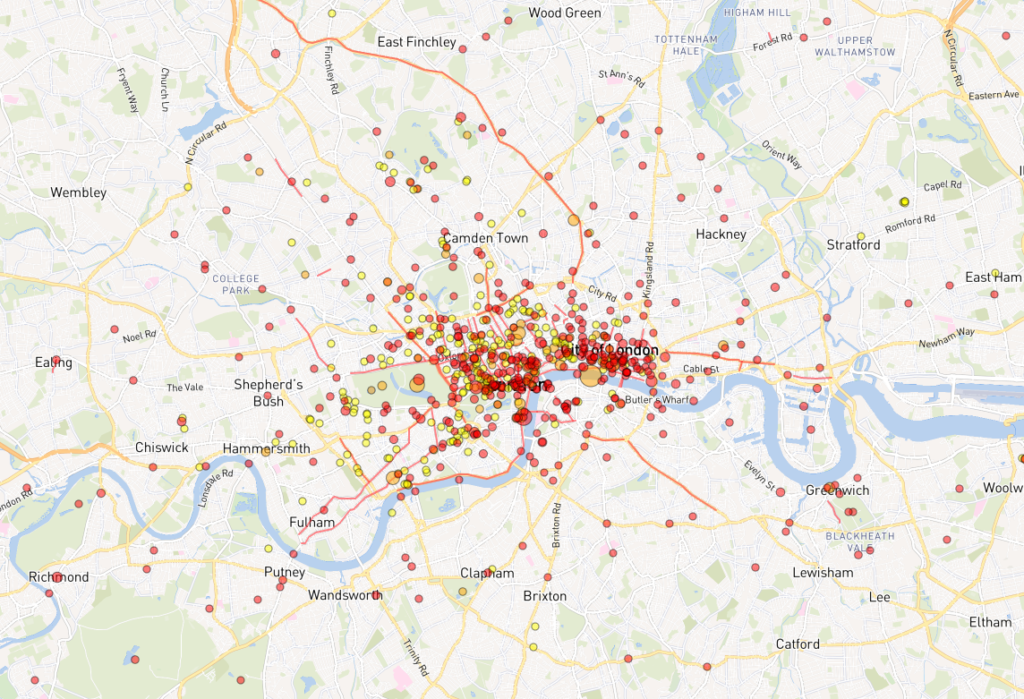The project I explored is Stanford’s Authorial London, which is open source and maps locations in the city that either famous authors lived in or wrote about between the fourteenth and seventeenth centuries. The goal of the project is to explore the intersection between geography and literature as well as how the sentiments and meanings people associate with certain locations change throughout generations. To do this, the project draws upon subjects like history, english literature, and geography. The target audience is both researchers and the general public.
Authorial London used printed texts by the authors as well as those that were available to the public on Project Gutenberg. To create this project, researchers first manually parsed through forty texts to provide a base for machine learning. They then used ElasticSearch algorithms to find “place references” found in six hundred and ninety pieces of work on Project Gutenberg. Afterwards, the contributors geocoded the locations onto applications like OpenStreetMap and Google Maps. The developers of this project chose to represent locations mentioned in the books (red dot) as well as where the authors lived (yellow dot) on an interactive digital map. Site visitors can sort these landmarks by author, neighborhood, and title. They are also able to change the base map to see how these locations evolved over time.
This project is a great example of how researchers could leverage historical metadata with geographical information. It gives the audience the ability to analyze trends from both spacial and textual perspectives.



Ray, this sounds like a super interesting project! I’m particularly curious how the ElasticSearch algorithms for finding place references work. I think that’s a really cool example of how humanities can be enhanced through computer science and other digital processes!